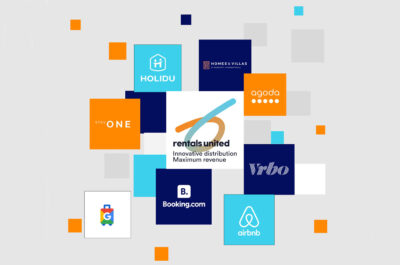An early residence quest will help you plan your move efficiently and give you enough time to do your research and find an accommodation settinghat meets your criteria.
When looking to find accommodation in London, you would be wise to start early and not postpone your property scouting to the last minute. Consider beginning your housing pursuit as early as three months before your moving day to make sure that you’ve gone through all the best available options. An early residence quest will help you plan your move efficiently and give you enough time to do your research and find an accommodation settinghat meets your criteria.
1. Prepare and assemble your essential documentation
Landlords and property owners in the UK can request a variety of documents and information from you as part of their tenant screening process. Your landlord will use these documents to assess your eligibility and ensure that you meet their rent obligations and can maintain their property. Some of the common documents you will be required to avail for accommodation in London can include:
- Your proof of residency such as a utility bill
- References from your previous landlords to verify your rental history
- Proof of income to demonstrate your ability to pay rent
- Your bank details for direct debit rent payment
- Character references from people who can vouch for your trustworthiness and reliability
- Your Visa or residency permit to verify your immigration status and the right to rent in the UK
Since the specific documents that you need to provide may differ from one letting agency to another, you should put in effort to research your desired accommodation and communicate with their representative to know their requirements and the documentation they need for their housing application process.
Most landlords in London may require you to have a UK bank account, so if you are of foreign origin, you may need to open a UK bank account for convenience. A great tip would be to reside in temporary accommodation like Airbnb as you establish yourself to find more permanent housing in London.
2. Set your budget
You need to figure out how much you can afford for your housing arrangement before beginning your search for a house. London is a world-class city where you may find high rent rates for accommodation. You can consider booking vacation rentals in London if you are on vacation.
You may want to factor in aspects such as commuting and utilities along with your accommodation budget. Most people in London spend about a third of their income with some people getting closer spending half their monthly earnings on rent and utilities.
3. List the areas you are interested in
London comprises smaller towns and villages with many different properties that can be suitable for your accommodation. Making a list of the areas you are interested in living in can help you find a setting that is comfortable and suits you.
To be more efficient with your time, look at several properties in the areas on your list instead of darting back and forth in the huge London City looking for accommodation. A list of your preferred areas in London will aid you in knowing the different London postcodes, rule out the places you don’t want to live in, and focus on the most suitable accommodation locations for your needs.
4. Book viewings for the accommodations you are intrigued by
Booking viewings for accommodations in London can be a hassle depending on the letting agency so it would be advisable for you to start booking your viewings as soon as you’ve identified your preferred living quarters. Different landlords choose varying letting agencies for their properties and you might find yourself having to call up each agency, submit your details, and make appointments to view the housing units separately. While new homesteads are almost always becoming available in London, they do go fast, so dilly-dallying on booking your viewings can make you miss out on your desired residence.
Some modern property management companies can offer you a virtual walk-through of the apartment setting making your viewing more convenient for you if you can’t find time to avail yourself for a physical viewing. Viewings can be a great opportunity for you to double-check anything important and make sure that you are on the same page with everything pertaining to your desired abode.
5. Inquire about every detail
Your property viewing is a great opportunity for you to interact with the house as much as possible and examine its contents. You can check if the water pressure is alright and assess if the windows can open or if they are accidentally painted shut. Be keen to note any unfixed damages or faults in the property and mention them to your landlord or letting agency before you move into the house.
Take your time to ask as many questions about the property as you need to to ensure you understand the terms and conditions. Enquire about their policies on move-in repairs as well as how they would typically handle your post-occupancy repair needs.
6. Negotiate your lease
With traditional rental leases in London, you can negotiate a lot including furniture that you may want included before you move in or even rooms you may want painted in a different color. Negotiating your break clause can help you and your landlord settle on better terms for when you can move out without penalty and when your landlord is in his rights to ask you to vacate their property.
Always try bargaining on the price of your rental lease for an amount that you feel may be comfortable for your financial situation. You shouldn’t hesitate to negotiate the stated property price of your chosen residence quarters because the worst your landlord can say is no. You may be surprised that they might be flexible with their prices.
7. Do a full inventory on move-in after signing your lease
You need to write your list of the property’s housing stock before moving in and finalizing your lease agreement. You may have limited recourse if something goes wrong that you didn’t know about in the contract.
You can make copies of the tenancy agreement and document the property by taking pictures. Understanding your tenancy agreement will help you maintain the house’s condition and prevent potential complications when it’s time to vacate.
Endnote
Discovering the ideal place to call home in London may seem like a daunting task, but interacting with the properties as much as possible during viewing can lead you to a lifelong home. You can find neighborhoods with convenient transportation options for your daily commute to work or school if you are a Uni student.









































































































































































